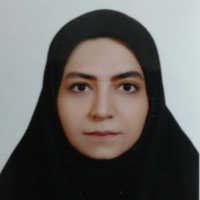Effict of cognitive-computer software on executive functioning skills and quantitative reasoning of 7-12-year-old children with Dyscalculia
Cognitive rehabilitation has an effect on the improvement of symptoms of dyscalculia disorder such as executive function and quantitative reasoning and affects other children's functions.
The purpose of the present study was to investigate the effectiveness of cognitive-computer software on the executive function and quantitative reasoning of 7-12-year-old children with dyscalculia.
It was a semi-experimental research design of pre-test-post-test and follow-up with a control group. The statistical population included all children with dyscalculia in Isfahan city in 2022-2023. 45 children with dyscalculia disorder were selected by purposeful sampling and placed in two control and experimental groups.. For the experimental group, Captain Log (2020) cognitive-computer training program was implemented in 10 sessions of 60 minutes; But the control group did not receive any intervention. The research tools included the fifth version of Wechsler's intelligence scale (Wechsler, 2014), continuous performance computer test (Rosold, 1956), Wisconsin card sorting test (Grant and Berg, 1948), Tower of London test (Challice, 1982). The data obtained from the research were analyzed with SPSS software version 26 and using the analysis of variance test with repeated measurements.
The results showed that Captain Log computer cognitive software had a significant effect on executive function (attention, error elimination and correct answer, problem solving and cognitive flexibility) (p<0.001), but on Quantitative reasoning had no significant effect (p>0.05).
Based on the findings of the research, it can be concluded that the cognitive rehabilitation of Captain Log's cognitive-computer program can be used as an efficient method to improve the cognitive ability of 7-12-year-old children with dyscalculia.
-
Effects of Yoga Training on Cognitive Performance and Anxiety of Children with ADHD
Sara Bagheri, *, Sedigheh Khajeh Aflatoon Mofrad, Sholeh Khodadad Kashi, Valiollah Shahedi
International Journal of School Health, Summer 2025 -
Comparing the effectiveness of of Combined Virtual Reality and Mindfulness Therapy with Short-term Mindfulness Intervention on Cognitive Flexibility in people with generalized anxiety disorder
Toktam Masoumi, *, Hadi Farhadi
Journal of Psychological Sciences, Sep 2025 -
The Relationship between Self-directed Learning and Problem-Solving: The Mediating Role of Self-regulated Learning and the Moderating Role of Gender among University Students
Ansaf Jasim Imran, *, Ali Hussein Mazloum Al-Mamouri, Mohammad Ali Nadi
Iranian Journal of Learning and Memory, Autumn 2024 -
Comparing The Effectiveness of Healthy Body Image Package (HBIP) and Cash Cognitive-Behavioral Therapy (C-CBT) on Fear of Negative Evaluation in Dissatisfied Adolescents Aged 12 to 15
Shiva Akhtarian, Mansoureh Bahramipour Isfahani *, Ghlolamreza Manshaee
Research in Clinical Psychology and Counseling, Autumn and Winter 2025 -
Effectiveness of Unified Transdiagnostic Treatment and Reality Therapy on Irritability and Children’s Self-efficacy for Peer Interaction in Children with Disruptive Mood Dysregulation Disorder
Sayehnaz Saniei Abade, *
Journal of Clinical Psycology, Winter 2025 -
Relationship between Coaches' Sense of Humor and Teamwork Effectiveness in Athletes: Mediating Role of Psychological Capital
Monir Rostam Abadi *, Ahdiyeh Yadollazadeh, Galin Mahdinejad Gorji, Seyedeh Fatemeh Nasirkhany
Journal of Sports Psychology,




